Miss Rep will be at it again.
Here is the new list of 2013 Twitter handles for advertisers, just use the #NotBuyingIt hashtag on Twitter to make a social media statement and pushback against sexism in advertising.
And this year, 2013, they have a free TOOLKIT to download created with Girls For A Change, complete with whys/hows for newbie participants. (also don’t miss the 3PercentConference ‘cheat sheet’ as seasoned ad execs critique pros/cons of ads, expressing why there’s a need for more female Creative Directors in the ad industry. (the sexist ads will make that pretty obvious.)
The Miss Representation community reached nearly a million minds last year to influence on the importance of gender equity and tamp down stereotypes and disrespectful media messaging.
Why is this so important to Shaping Youth?
Kids get their messages early, and often…so when people mistakenly express, “kids won’t even get that” or “it’s okay, they don’t even understand” that may be very true of innuendo and nuance, but not of mirroring and imitation.
Great example on Common Sense Media’s blog titled, “Wearing No Pants for the Super Bowl” her kids were 3 and 5 imitating antics years later. (fwiw, this is the same age of kids I saw in the theater last week absorbing the violence of Zero Dark Thirty with some parents clearly thinking it wouldn’t ‘stick.’ sigh) A hilarious, somewhat surreal smackdown of media messages sent to kids is in the NYTimes Motherlode blog titled, “Sex! Beer! Blood! It’s Time for Super Bowl Ad Bingo!
Think about it. Then use your consumer power and voice to challenge sexism and ACT on it. Join us all on Feb 3, 2013 to make change, be heard, and raise your voice to call-out offensive commercials.
The kids ARE taking it all in…(and no, not JUST the Super Bowl, I recognize that’s easy to dvr/turn off or switch to The Puppy Bowl, this is a movement about the everyday sexism coming at kids daily) Example of ambient messages that can’t be ‘turned off?’ Spencer’s merchandising/window display.
Time to STOP. Look and listen. And use social media to whack big businesses in the ass-ets and change the purchasing power and point of view to a healthier media landscape. Not just for the kids, for us ALL.
Original post: Feb 4, 2012 Super Bowl Sunday! Are you ready for some (political) football?
Thrilled to see the advocacy momentum of Jennifer Siebel Newsom’s excellent documentary film Miss Representation is igniting passionista fervor far beyond media education.
Daughters everywhere are about to toss a red flag penalty play on sexist Super Bowl ads, “tweeting” in Howard Beale/Network “I’m mad as hell and not gonna take it anymore” social media style using the Twitter hashtag, “Not Buying It.”
That’s right, we all get to turn the Super Bowl into an “I spy with my sexist eye” game of experiential wrist-slapping and a mindful media lesson on corporate accountability.
Gents, will you join us too?
If you’re unfamiliar with the amazing Miss Representation film particulars, it’s a jaw-dropping show-n-tell evidentiary piece of “you can’t make this stuff up” journalism, weaving in the outrageousness of sexist media portrayals in a tapestry of high profile firsthand experiences from renowned leaders and women’s media experts.
It’s an engaging, fast-paced, often humorous, poignant romp…like an Onion spoof except for the painful fact that the inequities and absurdities are blindingly true…
On Superbowl Sunday, the world’s largest family co-viewing event (over 111 million viewers last year) there will no doubt be cringe-worthy awkward moments for females with the usual buxom beer advertising drool fests, and objectified ‘sex sells’ scenarios (mindfulness and media tips for dads and daughters co-viewing together here)…
This season, though, Miss Representation, teaming with our colleagues at Spark! will engage us all in holding these corporations accountable for continuing to produce and perpetuate highly sexualized messages despite being proven harmful. (see APA task force report)
A sports event shouldn’t leave over half the population uncomfy and shifting in their seats…especially young girls subjected to cultural cues that tell them this is their ‘self-worth’ in our society, and young boys we continue to reach and teach this toxic objectification as if this is what females are ‘for’…
Time for some cycle-breaking…
As Joe Kelly of Dads and Daughters used to say, “If you wouldn’t put your daughter’s face in the ad, it shouldn’t be produced.”
Join us for the #Not Buying It hashtag on Twitter campaign to kick some corporate coffers in the ass-ets, and score some points for a universal humanity win.
Miss Representation 3 minute Trailer from Miss Representation on Vimeo.
About This Guest Review Below: Since I’ve already viewed the film three times myself in theatres with youth of various ages, recorded it off of the Oprah Winfrey Network to use clips and outtakes for media literacy sessions, and am an unequivocal supporter (Shaping Youth should probably join these orgs as a media “partner”) I asked guest writer Karen Dahl who attended the East Coast Paley Center event to give HER in-depth review instead to ensure I’m not biased. Plus, she has preschoolers at home, which are only just now starting to be exposed to the media mix, so she comes at this from a fresh perspective. Enjoy! —Amy Jussel
Karen Dahl Talks Tots, Gender Obsessions…
…And Navigating Media Messaging
First Person Prelude:
Karen’s Kids, Context
Gender is the latest hot topic around here.
For almost a year, my preschool aged son has said on occasion, “boys are girls and girls are boys.”
He has told this to friends in class, often girls, who have gone home and told their mothers, thinking he has told them a funny joke.
He also thinks that “kids” means “boys” but not “girls.” He has asked me to explain this to him but I’m not sure he quite gets it yet. Only very recently have questions about different pieces and parts on girls and boys come in to play. He also recently asked me if he could “milk a baby” when he grows up. I’ve hesitated to say too much because the innocence of not knowing the difference between genders is one I’d like him to hold on to for a while. While I don’t want him to be ignorant, I also don’t want his rapidly firing synapses to process anything through a gender lens before it absolutely must.
While I want to teach him some of the basic differences in gender, there is a big part of me that would rather not, mostly because, as a FILL-IN-THE-ADJECTIVE mother, I don’t want to limit him in any way. I want the kitchen to remain his favorite place to play forever. I want him to want to “milk a baby,” take dance class, and invite girls to play baseball with him.
Part of me knows we are at the simplest part of this now and I want to stay here. The images portrayed on television and by the real people we see and interact with are what makes it most difficult. And, I’m struggling to find the distinctions between boys and girls beyond the biological (he’s been briefed) and the sexual (not so much).
He’s also a bit of an athlete already. I’m not sure if it will last, but the kid loves to hit, kick, and throw balls, and he’s pretty good at it…really. He takes a baseball class and the coach, who I think is a wonderful coach in so many ways, occasionally makes a “girl” comment – the most benign in which he compared them to girls because they all needed a bathroom break at the same time.
I have a growing rapport with the coach, so every time I have heard him say something like this, I have said something back, in my half-smiling, half-serious tone. I don’t think I’m changing the coach, but I hope he’ll stop making the comments (he’s only made a few), at least in our class, and maybe other parents will become more aware too. Who knows? I say something because it just comes out of my mouth when someone says something that I can’t believe people still say – and to or in front of children no less.
At baseball class and on the playground, I have been somewhat saddened about the pressure that parents put on their youngest boys to perform in athletics and physical competition. I’m not talking about guiding or teaching basics, but a real sense of, “you have to get this, do it again, you’re not doing it right, see how that kid is doing it?” mentality. I don’t even think most of them realize it, but I wish, in my annoying sanctimonious way, we could all tell when we’re crossing that line of helping them to enjoy something vs. hindering them from ever wanting to do it again.
Did I mention I also have an 18-month-old girl?
I’m struggling (already) even more here. The dressing of a baby and now toddler girl gives me a bit of anxiety every day. I actually think I’m a little insane about it. I don’t want her to wear pink, frilly things, or anything that says, “I am definitely a girl,” mostly because I don’t enjoy frilly things and I really do not understand the need to make sure everyone knows which babies have vaginas from the minute they are born.
I was one of the people over a year ago who saw a picture in a parenting magazine on a story about family travel with a seven or eight year old girl climbing over the back seat of her car, underwear fully on display, that thought it was inappropriate, rude, and not necessary. I didn’t write a letter, but was glad many others did. Their response, though I can’t find it now, was that it was completely unintentional and that they were sorry to have offended. Whether that’s true or not, that might even be worse than if they had done it on purpose.
My girl wears a lot of hand-me-downs from her big brother and gets called a boy often. It doesn’t really bother me and she’s too young for it to bother her, and a lot of the time I don’t even correct people because they’re strangers just commenting on how “cute” my child is. As she has gotten older, I have started to put her in a pink thing here and frilly thing there (all gifts or hand-me-downs so far), usually juxtaposed against a much more “masculine” piece (e.g. a frilly skirt, with leggings with knee pads, and brown sneakers).
She’s yet to wear a skirt or dress out of the house without leggings underneath. I can’t articulate all the reasons why, but it just feels better to me to not have her undersides – diaper and all – showing, and until she’s old enough to spend all of her time in a vertical position, a period of her life that I hope lasts a VERY long time, leggings seem to be the best answer.
What’s worse is that as smart and educated as I am and the context for this post, I just told you about my son in the context of the activities he enjoys and about my daughter in terms of what clothes I put her in every day. Ack!!!! I do think this is in part because she’s 18 months and her athletic prowess and interests (beyond Elmo and balls and everything that her brother likes and has) are not quite as developed yet. But still, there’s more at play here.
As much as I hate to admit it, pop culture and advertising have undoubtedly had influence over my decisions about how to appear, dress, and maybe even act (though I think less so) for my gender and my status in society. I’ve never been a “girlie” dresser myself, but I do appreciate the ability to dress in a “cute” outfit or even, on occasion, one that makes me look “sexy.”
I enjoy fashion, and have subscribed to InStyle for years: you wouldn’t know it most days if you passed me on the street. It does feel as though the older I get, the more I want to look “good,” “refined,” and “dressed well.” For me, this is wearing clothes that fit me well, hopefully that compliment my figure (does anyone besides my mom use this word anymore?) and match. I think part of this has to do with having kids and “getting my body back” afterward, and part of it has to do with wanting to respect the body I do have, and yes, show it off a little. I think I’m good at putting outfits together and knowing what works for my body and that satisfies me. I’m not fashion obsessed, but I do like it. I know my husband likes to look good too, but for him it’s about the right fabulous sneakers to wear with his outfit, not how his butt looks.
So, this is a large part of my current context for a film like Miss Representation.
The tag line, for the film is, “You can’t be what you can’t see,” a quote attributed to Marian Wright Edelman, perhaps one of the world’s best-known child advocates.
While I actually don’t believe this completely, particularly for children whose imaginations have not yet been completely quashed by adults, the sentiment rings true. It is certainly more difficult to become something or someone without a role model, especially when we spend a lot of time telling children and adults what they can and can’t do in every context and medium.
“Little boys and little girls in equal numbers when they’re seven years old want to be president of the United States when they grow up, but then you ask the same questions when they’re 15 and you see this massive gap emerging.” — Caroline Heldman, PhD (Associate Professor of Political Science, Occidental College)
“So no matter what else a woman does, no matter what else her achievements, [her] value still depends on how [she] look[s].” – —Jean Kilbourne, EdD (Filmmaker, Author, and Senior Scholar Wellesley Centers for Women)
Miss Representation, Women in Politics
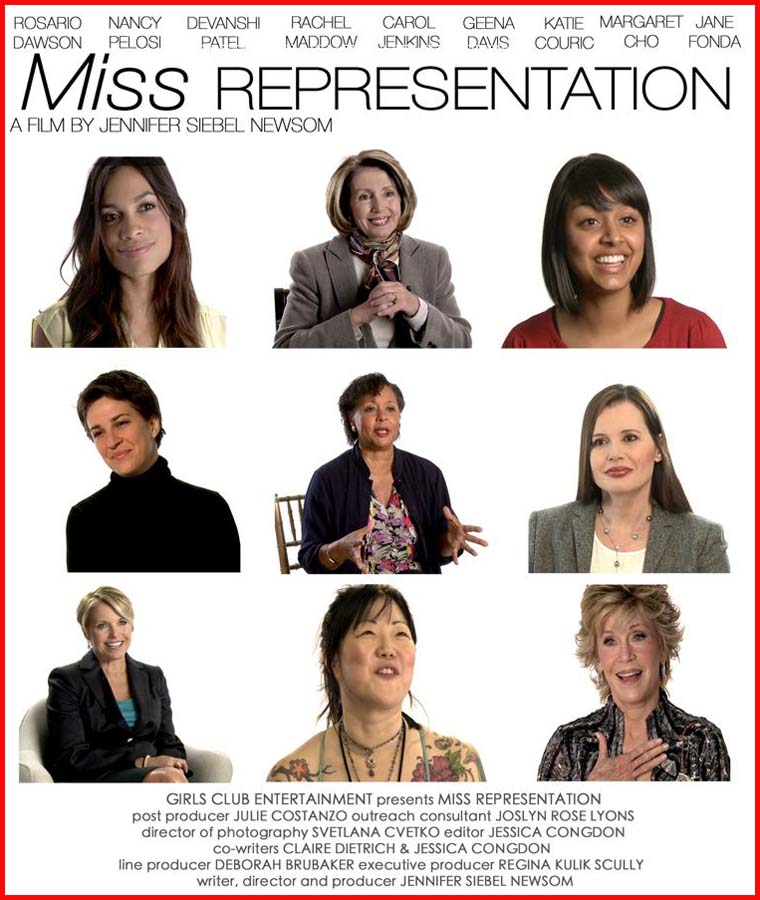 The film focuses quite a bit on women in politics. This is a conversation rife with evidence, not only on the statistic front in terms of how few women there are in positions of political power in comparison to the percentage of the population we make up, but also in the raw footage available of the horrific way the few women who are in the political spotlight are treated. Now, it would only take a quick Google search or a glance at my bio to know what my political leanings are, but that is not what this is about. Treating women poorly or differently because of their sex is wrong, yet still somehow allowed with little to no recourse.
The film focuses quite a bit on women in politics. This is a conversation rife with evidence, not only on the statistic front in terms of how few women there are in positions of political power in comparison to the percentage of the population we make up, but also in the raw footage available of the horrific way the few women who are in the political spotlight are treated. Now, it would only take a quick Google search or a glance at my bio to know what my political leanings are, but that is not what this is about. Treating women poorly or differently because of their sex is wrong, yet still somehow allowed with little to no recourse.
The now infamous Saturday Night Live clip of “Sarah Palin” and “Hillary Clinton” from 2008 was not funny because the actors were doing great impersonations. It was funny, like so much comedy is, because what they were saying about how the media and public spoke about them was true. Miss Representation speaks further to this point with different examples.
Writers will often make slight word changes when speaking about a woman, using “complained” instead of “said,” or use the word “ambitious” with a negative connotation. In articles, reporters/writers sometimes remove the title of Secretary Clinton and other senior officials or representatives to diminish their role.
Secretary Clinton has also actually been called a “b****” on the news. There is a phenomenon described about the current and continued classification of women into one of two categories: bitch or ditz. I would guess that the majority of the Palin/Clinton discussions and comedy (the line was blurred forever on news vs. fiction here) were focused on this dichotomy.
As an aside, why do we still call so many inanimate objects “she?” Cars, boats, storms (though there are male storms too). In a world where you can still occasionally hear things like “Isn’t she a beauty?” we haven’t come far enough! And I’m sure this joke wouldn’t have been thought of if they had been talking about Hurricane Ivan. If inanimate objects are female, it makes it much easier to make the connection to females being objects.
“All of Hollywood is run on one assumption – that women will watch stories about men but men will not watch stories about women,” —Geena Davis
“The media can be an instrument of change. It can maintain the status quo and reflect the views of the society or it can awaken people and change minds. It depends on who is piloting the plane,” —Katie Couric
Women in Media
Whenever there are two strong women of any public notoriety (e.g. Katie Couric and Diane Sawyer) the context becomes a competition and their existence is automatically positioned as a catfight, regardless of reality. This is a circular problem. Because there are fewer women at the top, it is easier to do this, and because this is done, there are fewer women at the top. This is only the tip of this issue, but a great contributor to the continuation of it.
We don’t need to look far to see women being objectified in the media, particularly in fictional dramas and comedies. It still seems to be an acceptable joke, even when the content isn’t the least bit funny. But instead of declining over the years, the objectification is growing.
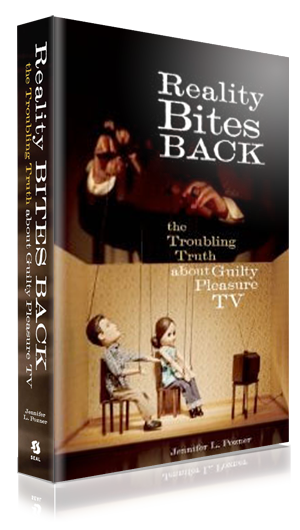 Reality television is a big perpetrator of this trend. What is scary about that, is that it is supposed to be “real” and whether you believe that or not, the general perception is that these people are saying things that they believe and acting the way they would act in “real” life. My kids are much too young to touch this stuff, but it is scary to think of the potential long term damage we are doing to people with the behavior portrayed on a lot of reality shows.
Reality television is a big perpetrator of this trend. What is scary about that, is that it is supposed to be “real” and whether you believe that or not, the general perception is that these people are saying things that they believe and acting the way they would act in “real” life. My kids are much too young to touch this stuff, but it is scary to think of the potential long term damage we are doing to people with the behavior portrayed on a lot of reality shows.
(Amy’s editorial note: Must read media: Jenn Pozner’s Reality Bites Back Book and media literacy activities emphasizing and quantifying this damaging trend)
In addition, the film briefly discusses the (d)evolving way women newscasters are presented to the public. In many cases, the women are dressed in revealing clothing and have the appearance of young fashion models. It seems that their ability to read the teleprompter comes second, and their ability to actually discuss the news a distant third. In an interview for the film Katie Couric actually says that she has wondered if she helped create this problem because of the attention paid to her legs and clothing when she was on the TODAY show. I wonder if any of the male executives behind all of these shows are asking the same question.
Years ago, I got to review audition tapes with a cable news executive and was more fascinated than appalled at the time to learn what I should and should not be focusing on when watching the tape. I do understand that in order for someone to not turn the channel the person they are watching needs to be pleasing to the eye. My concern is who is deciding what is pleasing to the eye and how far do we have to go to reach the intended audience? Who is the intended audience anyway?
Women for Women
One of the more minor themes in the film is girl on girl hate, probably my least favorite thing when it comes to women, power, and representation. I’m sorry to say that I see it every day with women emotionally, socially, and occasionally physically beating up on other women, in the workplace and on the playground. It makes me sad, crazy, and confused. Why do we do it? What about our own insecurities make us judge the crap out of other women and their choices, their successes, their failures, large and small.
The media makes it seem like this behavior has existed since women have existed, but is this true? Was there ever a time when women didn’t put other women down – to their faces behind their backs, or with an occasional eye roll or tsk, tsk. I’ve experienced this phenomenon mostly as I rose to positions of power in the work place and as a mother. And, I can’t deny that I’ve done it to others. I think it is the most damaging thing of women above all else.
Where do we get the idea that there has to be only one right way to do something? And that someone else making a different choice is making a lesser choice or makes us question our own choice? Why isn’t personal and professional collaboration the norm? Who are we competing with? For what? For who? And why? Is this behavior primal? Learned? Beaten into us through media and/or our elders? How do we change it?
If women really stuck together and supported each other through everything no matter what, as Susan Molinari is quoted telling a group of women in the film, we’d rapidly have a different society on our hands, with more women in power in all sectors.
“We’re socializing boys to believe that being a man means being powerful and in control, being smarter than women or better than women or our needs get met first in a relationship with a woman. That’s not genetically predestined, that’s learned behavior.” — Jackson Katz, (PhD, Educator, Filmmaker, Author)
Boys & Men
It turns out that advertisers target 18-34 year old males because it’s harder to get them to watch television. Women will just watch regardless. I have to admit that his was surprising to me and I’m still not quite sure what it means. But I do know that this fact puts a lot in perspective in terms of what is on television and in the media and how ridiculously hard “they” are working to get males to watch television. I wish someone would work that hard to get me to do anything at all. I’m kind of jealous. And do all men really just want naked women dancing and talking on a screen? Is it that simple? Can’t we raise this bar? Don’t we owe it to ourselves to raise the bar – for all of us?
But they’re right. I do watch crap. I might be a victim, but I’m also a perpetrator. While I agreed in my head at the end of the screening to not buy the trashy tabloid magazines, something I almost never do anyway, I definitely read the headlines on the cover. My worst offense in this category, however, is that while I don’t watch a lot of television, I do watch The Real Housewives of EVERYWHERE and almost everything that airs on Bravo, as well as a little show called Gossip Girl. They’re my treats, like ice cream, which I often indulge in at the same time I watch, sometime between bedtime and bedtime. While I have the filter to know what’s good and bad, right and wrong, real and fake, I still feel guilt about watching, about adding to their revenue in some indefinable way. I mean, we’re not a Nielsen family, but it still matters. Right? I still don’t think I feel strongly enough not to watch. What does that say about me? Anything interesting at least? (Amy’s note: shock and awe, Karen—shock and awe! See? This is why I asked for a ‘normal person’ to write this post since my bias is self-evident; tho I suppose my version of this would be the ‘teen bonding’ time w/ABC Family’s “The Lying Game”)
Paley Center Screening Discussion
Karen Dahl Attends and Reports for Shaping Youth
I was lucky enough to see Miss Representation at The Paley Center in New York and it was followed by a panel discussion with Jennifer Siebel Newsom (the filmmaker), Christiane Amanpour, Nancy Hult Ganis, executive producer, writer, and creator of Pan Am, and Terrie Williams, a public relations executive with a background in clinical social work. Pat Mitchell, president and CEO of The Paley Center, who also appears in the film, moderated the conversation.
Ms. Amanpour started things off with a bang. Her comments in the first few moments included, “It’s enough already,” “I’m enraged,” “I’m so pissed off,” and “I’m furious.”
She went on to say how she has always tried to stay away from the female argument, that she is a woman, yes, but that she is just as qualified to do her job of covering breaking news in some of the most violent and war-torn countries as any man is. Yes, she is a mother, but she is able, with help to manage it all.
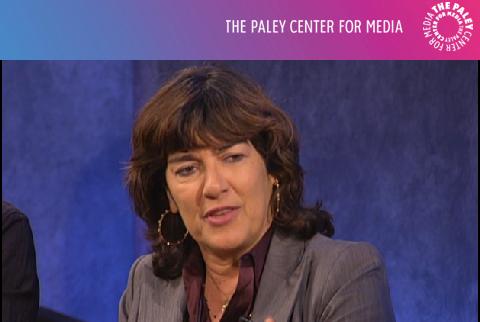 She has spent much of her career trying NOT to stand out because she is a woman, but this film got her riled up about so many of the wrongs that are happening that she wants to do it differently now.
She has spent much of her career trying NOT to stand out because she is a woman, but this film got her riled up about so many of the wrongs that are happening that she wants to do it differently now.
She wants to speak up – and she did – and help to change the culture for women. Ms. Amanpour said that she believes it’s about money, as many do, and that women with power and money need to make decisions based on economics. She asked the audience to think about countries where women literally have no rights and compare that to the most developed country in the world where “this,” the behavior and media portrayed in the film is considered okay.
She even spoke about a time when she was in a taxi driving up the West Side Highway with her young son and he saw a billboard advertisement for Hustler and asked her about it. She had made up some story about how people in there were going to the beach and that’s why they were dressed that way.
After the film, she reminded him of that time and told him the truth about the advertisement and what it meant about how women were being treated and that it was not okay. I am very hopeful that Ms. Amanpour stays engaged with Miss Representation and really helps to make the change happen because she is a woman with power who can have a great impact.
Not having seen Pan Am prior to the film screening and not knowing anything about Ms. Hult Ganis’ history or perspective I must admit I thought it was odd that she was part of the panel. The only print and on-screen advertising for Pan Am that I had seen made me think it actually engendered the type of behavior that the film was speaking out against. I was wrong.
 She is actually a former Pan Am stewardess and created a documentary with fellow former stewardesses that she sold to Sony to turn into the current television show. Hult Ganis was encouraged by male colleagues and friends to fight for a seat at the writers’ table to ensure that the original vision was not lost.
She is actually a former Pan Am stewardess and created a documentary with fellow former stewardesses that she sold to Sony to turn into the current television show. Hult Ganis was encouraged by male colleagues and friends to fight for a seat at the writers’ table to ensure that the original vision was not lost.
While Sony’s team has changed a lot to please those 18-34 year-old males, she has fought many battles (e.g. longer skirts, shorter hair) and has won many but not all of them. The original billboard advertisement for the show was actually a stewardess lying under a blanket with nothing but her Pan Am cap on – she fought hard against this and won.
Her personal story of becoming a stewardess started at college when a male professor attempted to sexually assault her (she successfully fought him off). She went to a female advisor to be switched to another course, and the advisor was more concerned that the professor’s career could be damaged if anything ever came out about the incident than she was about Hult Ganis’s wellbeing.
She walked out of that meeting and saw a poster advertisement for Pan Am stewardesses with the promise of traveling all over the world and left school to do just that.
I recently viewed the pilot of the show and am glad I had the background I did while watching. I thought it was quality television and plan to keep watching. I paid attention to more of the visual details than I otherwise would have, knowing that someone worked hard to make sure the skirts were a bit longer and the hair was a bit shorter and perhaps the women characters were being treated with more respect because Hult Ganis was at the table fighting every day to make sure the truth was not lost and the show did not “sell out” in a way that would have cheapened it and the women it portrays.
While the future of Pan Am is currently uncertain (and I do wonder if its low ratings have anything to do with it not being “sexy” enough), it is an important reminder of the unseen stories of women and men who are fighting to make changes in small but meaningful ways every day on this front.
Terrie Williams discussed the absence of people of color in addition to a lack of female representation in general and the concept of feeling “less than” that is shared by women and people of color. She talked about how there are so many babies raising babies and homes without fathers, and young girls and women “looking for love in all the wrong places,” all things that can wreak havoc on our state of mind and contribute to the perpetuation of women being treated as inferior on screen and off.
Her belief, and I’m not sure anyone can disagree, is that we need to be strong inside before we can fight this battle effectively: “We are nothing without mental and emotional health.”
 Jennifer Siebel Newsom (at left) further discussed the connection between what we see and how we behave. She also mentioned a statistic that didn’t make it into the film: boys who watch television are more sexist and girls who watch are more insecure. If that isn’t enough to make you believe in the power of television and media, I’m not sure if anything is.
Jennifer Siebel Newsom (at left) further discussed the connection between what we see and how we behave. She also mentioned a statistic that didn’t make it into the film: boys who watch television are more sexist and girls who watch are more insecure. If that isn’t enough to make you believe in the power of television and media, I’m not sure if anything is.
Overall, it was a wonderful, enriching conversation that only added to the film’s message. The only drawback was that there wasn’t enough time to dive deep enough to change the world right then and there – even though the will and the brains were in the room, on the stage and in the audience.
Click HERE to watch a clip of the Paley Center conversation.
Conclusion
Miss Representation opens with the following quote by Alice Walker: “The most common way people give up their power is by thinking they don’t have any.”
I think many of us, even in the 21st century in America where we talk so much about equality and the importance of it on every level in every landscape, still wake up in the morning and go to bed at night thinking we have less power than we do. I think we confuse power with control, which admittedly can be more difficult to come by.
We need to stop thinking that our power cup is empty and needs to be filled and start thinking of it as full and protect it from being drained by anyone or anything. We need to protect our friends’ cups too – women and men, together. We need to teach our children to do this from the very beginning. We need to do simple things like teach our girls how to play baseball, our boys to dance and to wear pink, and harder things like why a Hustler advertisement isn’t a good thing. We need to teach them to stick up for each other by sticking up for other people in front of them, over and over again.
Miss Representation is the beginning of a conversation about women and men and children and what it can mean to love and respect each other through our actions, our choices – the things we choice to do and not to do, publicly, privately, and everywhere in between.
None of us is perfect and we are all doing the best we can. Let’s remember this about our neighbors too – the ones we know and the ones we don’t. I hope in my lifetime that it will no longer be important to a woman to have a man say to her, “You are better at this than you think you are,” which is what former White House Press Secretary Tony Snow said to incoming Press Secretary Dana Perino when she took over for him. It’s always nice when someone else has confidence in you, but it would be nice if we didn’t need them to have it and I hope that we all learn to wake up full of awesome.
Yeah, yeah…Kumbaya to you too.
The documentary is full of stats, done in a very appealing and wonderfully contextualized way. Here are some of my favorites (not to be confused with enjoying what they mean):
- The higher a girl or woman’s self-objectivity, the less political efficacy she has.
- Women are the protagonists in only 16% of films.
- There used to be a lot more complex roles available for women (think Katharine Hepburn roles), and now women are more limited – “in a box.” This one was actually part of an interview with Paul Haggis (Crash, Million Dollar Baby).
- 14% of Rachel Maddow’s hate mail is 100% about her gender and sexuality.
- One of the most popular questions that Nancy Pelosi got asked when running for Congress, and as Speaker of the House (even though her children were grown) – “Who’s going to be taking care of your children?”
- Women own only 5.8% of television stations and 6% of radio stations.
- There are 22 ESPN channels.
- Less than 20% of news stories feature women and girls.
Additional stats: Miss Representation Resources
Organizations represented that are doing good things that you should know about:
- Women’s Media Center (Gloria Steinem, Carol Jenkins)
- The White House Project (Founding President)
- See Jane (Geena Davis)
 About Karen Dahl: Karen holds a master’s degree in education from Harvard University and a B.A. in English and French from the University of Connecticut.
About Karen Dahl: Karen holds a master’s degree in education from Harvard University and a B.A. in English and French from the University of Connecticut.
She lives in New York City with her husband, Brian Reich, and their two children, Henry and Lucy. You can find Karen on Twitter @kdahlface and on her personal blog.
We’re privileged to have Karen come aboard to lend a hand with Shaping Youth’s preschool research roundups, as her background lends itself to many of our media and marketing areas of concern. More?
From 2003-2010, Karen held a variety of leadership positions at Jumpstart, a national early education nonprofit. Prior to her work with Jumpstart, Karen was deputy to the communications director in President Clinton’s post-presidential office. She was also an associate producer and assistant to the president at MSNBC, and assistant to the communications director for Vice President Gore’s presidential campaign in 2000. She started her full-time career as an AmeriCorps VISTA.
Amy’s Add-Ons: Tips for Super Bowl Sunday
Read Miss Representation’s Blog Post “Not Buying It”
“Like” the Miss Representation Page on Facebook
Change Your Facebook Profile Icon, or Timeline Banner
Inform Yourself About How to SPARK Change!
Visit “Powered By Girl” on Facebook For Fun “Do-Overs” By Youth: Culture Jamming Media
Media Literacy/Super Bowl Tips: Dads & Daughters
Super Bowl-Mindfulness -Head Slams/Violence- Sports
Super Bowl’s “Racy” Ads/Athlete Roles – Danica Patrick
Media Education: Playing Unfair Doc/Film -Women Athletes, Imagery-Objectification in Merchandising
Using Super Bowl Ads in the Classroom: Frank Baker’s Exc Media Literacy Teaching Moments
Super Bowl as Learning Opportunity: School Library Journal Exc Resource Roundup

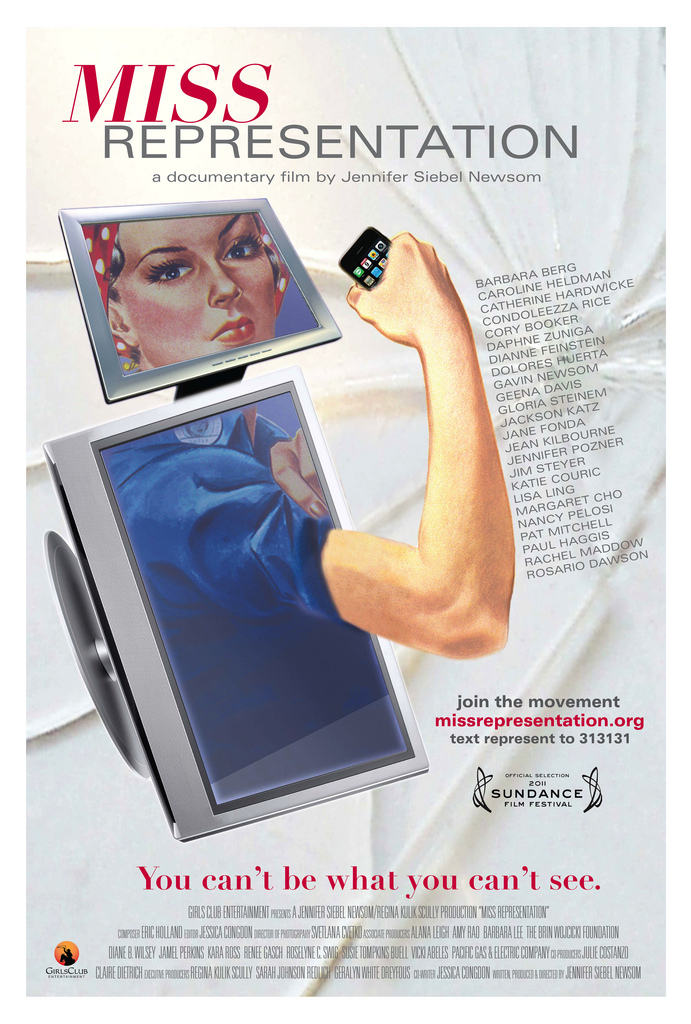
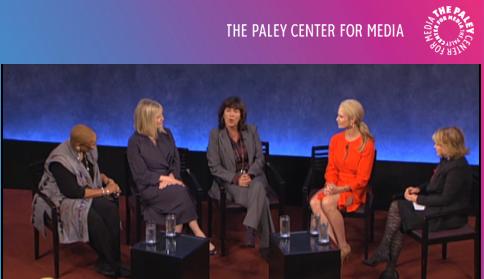









Great job all! From Miss Representation’s e-newsletter today:
“The timing is right! Let’s keep the pressure on. We are specifically targeting GoDaddy for their history of offensive commercials and encourage you to take the following steps to join us:
1. Continue tweeting @godaddy, letting them know you’re #notbuyingit. In the past 24 hours we’ve seen a flood of tweets directed at GoDaddy and as a result, the company has responded by suggesting equally offensive “alternative” commercials. In any case, we have their attention.
2. If you haven’t already, leave their hosting service. Then ask others to do the same! Here’s how.
3. Write GoDaddy a letter. We just sent them the message below expressing our disgust. You can use it as a template or write your own!
Dear GoDaddy,
For years your company has relied on objectifying and demeaning women in Super Bowl commercials. These ads not only needlessly stereotype women, but rely on shallow and offensive portrayals of men as well. As the #notbuyingit campaign on Twitter has shown, we are far from alone in our disgust with your advertising.
On Facebook you currently have the lowest rated Super Bowl ad of the night, as voted by potential consumers, and many have written extensively about their distaste for your ads. Your brand of sexism is no longer selling.
People are organizing online and using their power as consumers to let you know they’ve had enough. We at MissRepresentation.org are switching all of our domains from GoDaddy, but we are actively encouraging everyone we know to do the same. Many are already making the move.
That’s why we’re writing you today to urge you to reconsider your advertising strategy. We would even like to offer our hand in helping rebrand your company. We believe GoDaddy is capable of creating effective commercials without resorting to sexism. It just takes conscious effort.
That being said, until you’re willing to value women and girls, we will continue to organize consumers to call out GoDaddy.com.
We hope to hear from you soon. Thank you for your time.
Sincerely,
MissRepresentation.org
The three steps above can also be used to call out any of the other offensive Super Bowl advertisers.
We have already shown, through the response to #NotBuyingIt, the power of individual voices used collectively to fight sexism. The advertisers are on notice, and we’re not backing down. Together we are making a difference.
Warmest,
The MissRepresentation.org Team